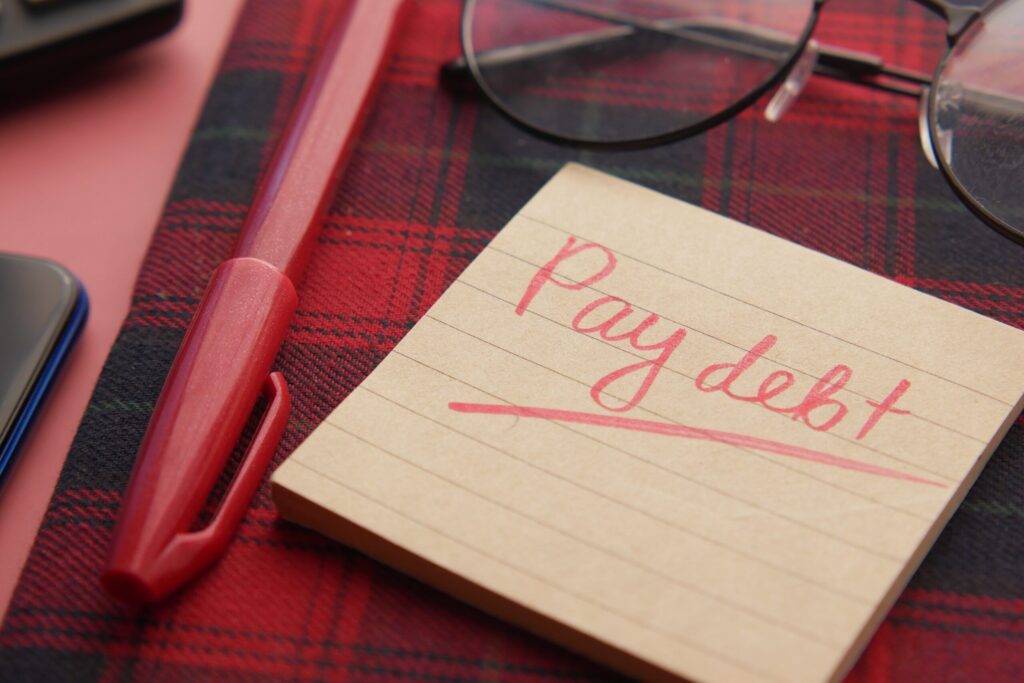For most, Canada is a land of financial opportunities. It offers its residents high incomes and a comfortable standard of living – especially when compared with the vast majority of other countries in the world. Yet, with great financial power comes the possibility of great financial responsibility. With high rent and fast spiralling mortgage costs, it is not unusual for many Canadians to find themselves harbouring a heavy debt load, despite having a high income. This is especially true in expensive cities, like Toronto and Vancouver. In fact, the average Canadian owes around $20,000 in debt. In this article, we explore the idea of high debt load, high income, and what you can do if you need to regain control over your financial wellbeing.
How does the Canadian debt landscape look?
Canada is well known for its strong economy and relatively high income levels, making it an increasingly attractive place to live and work. This wealth and prosperity, however, can occasionally lead to individuals accumulating significant debt loads. This debt often comprises mortgages, student loan debts, credit card debts, line of credit debts, and so on. Here are the most common debts faced by Canadians:
- Mortgage debt – while home ownership is a dream for many Canadians, it often brings with it a large mortgage. With the price of real estate consistently increasing, as well as the interest rates associated with mortgages, it is of little surprise many individuals carry substantial mortgage debt.
- Student loan debt – many Canadians take on student loans in order to pursue higher education in the pursuit of a career or vocation. Student loans can quickly amount to tens of thousands of dollars in order to fund the required education, which can become a problem if an individual is unable to make their agreed repayments.
- Credit card debt – while incredibly convenient, credit cards can quickly lead to large amounts of high interest debt when not managed properly, or repaid in full and on time each month.
- Line of credit debt – lines of credit are a form of revolving credit where a lender can access funds up to a maximum, pre-agreed borrowing limit. For many individuals, it is a powerful way to borrow a large amount of funds, often for projects like home renovations or education. Although they enable individuals to borrow large amounts, unmanageable debt can quickly accumulate if not repaid on time.
- Personal loans – when borrowing money responsibly for different purposes like a home renovation or for large purchases, personal loans can be incredibly useful. When not managed responsibly, however, they can result in a vast amount of personal loan debt.
- Car loan debt – although essential for most Canadians, be it for socializing or commuting, cars can also add another layer of debt to your finances – especially when ongoing monthly repayments are required.
High debt load, high income – what should I do?
If you have a high debt load, high income, you are not alone. With inflation on the increase and a rising cost of living, life is becoming more expensive and so this situation is happening for more and more high earning individuals in Canada. Larger debts also bring financial stress, and in turn often mental health problems. Facing a large amount of debt can feel overwhelming, and you might not know what to do next. Thankfully, there is always a solution, no matter how bad you might think your financial problems are. Here are some of the best ways to tackle paying off large debts:
Review the amount of debt you have
You might be wondering how much debt is too much in Canada? Generally speaking, a debt to income ratio of 40% plus is a sign that you are carrying too much debt. The concept of ‘too much debt’ is, however, subjective and means different things to different people. You might have a substantial amount of debt, but have a high income and be able to repay it comfortably. Here are some of the signs you might have too much debt:
- You are living paycheque to paycheque because the majority of your income is going on debt payments
- You rely on credit cards to make everyday purchases, including groceries
- You are making regular payments towards your debt, but the overall amount is not decreasing
- Your debt is preventing you from creating an emergency fund
- You are feeling worried or anxious about your debt
It is a good idea to calculate your debt to income ratio to check on your financial health.
Understand your debts
Before exploring how to tackle your debt, not all debt is created equal. Debt is not always a bad thing – in fact, good debt does exist and so it is important to understand the difference of good debt vs bad debt. Good debt is generally considered to be anything that increases in value over time – for instance, a mortgage on a house that eventually provides equity, or a student loan debt that opens the doorway to a lucrative career. On the other hand, a bad debt might be considered to be a car loan debt as vehicles decrease in value over time and are therefore not always good investments. Bad debts are any expenses or purchases that will not improve your finances long term – or debts that you cannot afford to repay that cause you to pay more interest. If you are in debt because of bad debts but can manage to make your payments comfortably with the amount of debt you have, this could work for you. If it is feeling unmanageable, it can still be possible to repay your debts – you may just need some support. In order to understand your debts, the following steps are a good idea to take:
- List out all the debts you owe
- Add in the associated interest rates, and any minimum payments
- Calculate your income from any jobs or payments you receive
- Take off the total amount of any expenses you need to pay each month, as well as the minimum payments for your debts
- Understand the amount you have left to go towards your debt repayment
Establish a budget
When managing high debt load, high income, a good first step is to create a detailed budget. By working out your monthly income, expenses, and debt obligations, you can create a clear picture of your financial situation, and see where you need to make adjustments accordingly. If you do not yet have an emergency fund, you may want to establish how you can begin to create one so that you can avoid relying on credit moving forward and to stop additional debt from accumulating. You should also look at how you can make lifestyle adjustments to cut back on any non-essential expenses, like cooking more instead of ordering takeouts each week. This could help to free up funds to go towards debt repayments. It is important to note that tackling large debts can be a long and challenging journey, but staying committed to your budget and financial goals is key to success.
Prioritize repaying your high interest debts
If you have multiple debts, focusing on those with high interest first is a smart way to reduce the overall amount you pay. This is also known as the debt avalanche method, and it minimizes the amount you spend on interest overall. Another form of debt repayment is the debt snowball method. This is where you repay your smallest debts first for a sense of achievement at being able to pay off a debt before moving to the next. Whichever approach you take to repaying your debt, it is important to have a strategy in mind.
Consider debt consolidation
If you have multiple high-interest debts, you might want to consider taking out a new loan to consolidate these debts. Debt consolidation loans quite literally condense multiple other loans into one, simplifying your multiple debts into a singular monthly payment. Another advantage of debt consolidation loans is that they often come with a lower interest rate, saving you money overall. Learn more about the advantages of debt consolidation.
Speak to a Licensed Insolvency Trustee
Licensed Insolvency Trustees are the only professionals in Canada legally able to file all forms of debt relief, which makes them well placed to advise you on your options. If you are overwhelmed by your debts and not too sure what to do next, firstly do not panic. No matter how bad you might feel your financial situation is, there is always a solution. Book a free, no obligation consultation with Spergel, and one of our expert Licensed Insolvency Trustees will review your unique financial circumstances and recommend a pathway to debt relief for you. We will support in creating a customized plan to tackle your debts, and can even support in negotiating lower interest rates or more favourable payment terms with your creditors to ensure you can meet your obligations. At Spergel, unlike other bankruptcy firms, you will be assigned your very own Licensed Insolvency Trustee from the outset to walk you through the entire debt relief process, instead of passing you from person to person.
High debt load, high income – which is the right debt repayment approach for you?
You might still be wondering which method is the best when it comes to tackling large debt. The best way to erase a large amount of debt is to choose a debt payment strategy that works best for you. Use the table below to discover which strategy might be the best fit for your finances:
| This method… | Might be right for you if… | What you should know |
| Debt consolidation | You have a lot of expensive, high interest rate debtYou want a simpler approach to handling your debt | It can reduce bills with one simplified paymentHomeowners can access more options, like secured personal loans |
| Avalanche method | You have a lot of patience and disciplineYou understand how your interest rate affects the cost of your borrowing | It pays down debt faster and saves you moneyIt can be a challenge to stay committed as the first wins could take some time |
| Snowball method | You need to get started quickly and stick to paying down debt | It is a very motivating method as wins come quickly as debts are paid offIt can be more expensive that the debt avalanche method in the long run |
No matter which method of debt repayment is right for you, there is no one way to pay off debt provided your efforts are resulting in a decrease in your debt balance over time. Once you are into a committed cycle of repaying your debt, you should address the behaviours or situations that led you to debt in the first place. At Spergel, we can offer credit counselling and money management sessions. By addressing what got you into debt in the first place, you can make sure your debt repayment habits set you up for success long term, and on the path to your financial goals.
While having a high income in Canada has its advantages, it also comes with a responsibility to manage your finances sensibly. If you find yourself overwhelmed by substantial debt or are worried about inflation, it is important to take proactive steps to regain control. By following a debt repayment strategy, seeking professional advice, and remaining committed, you can achieve financial freedom. If you have a high debt load, high income, book a free consultation with Spergel today to get started on your journey.



















